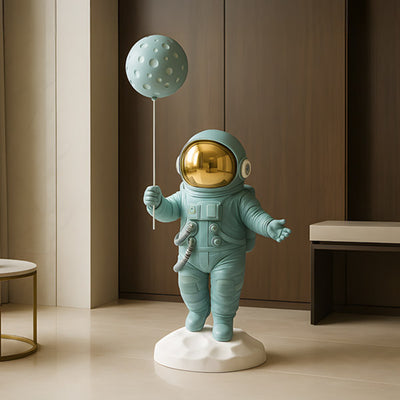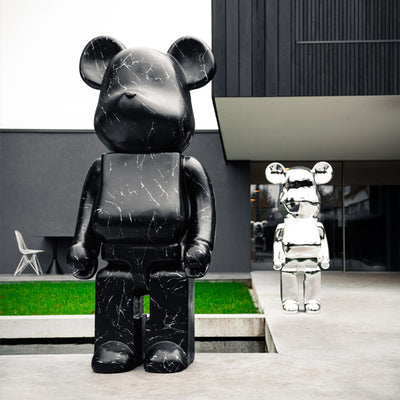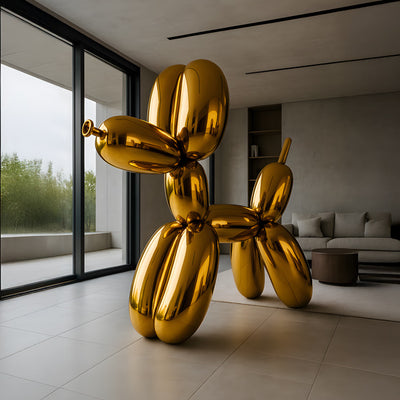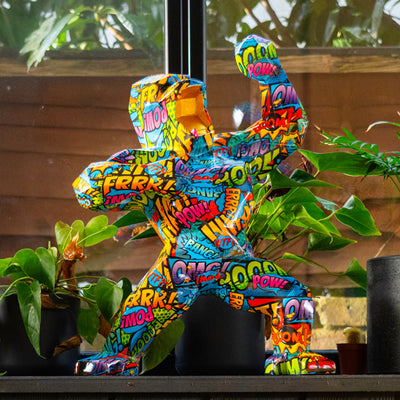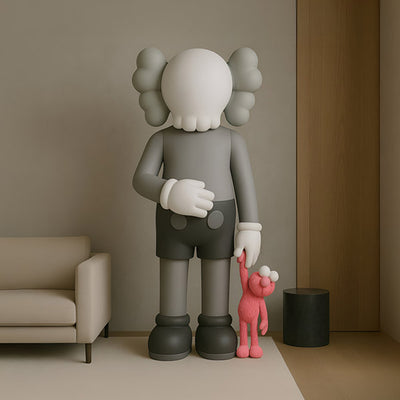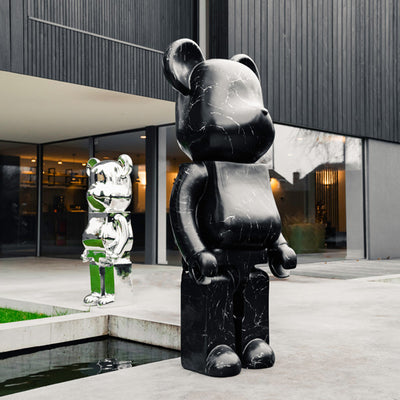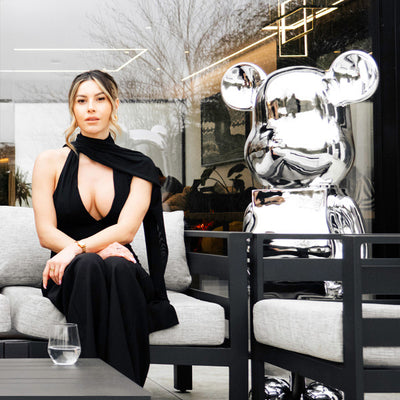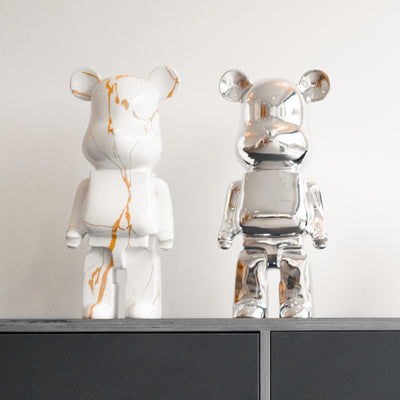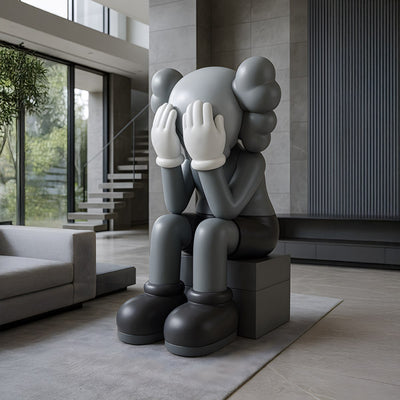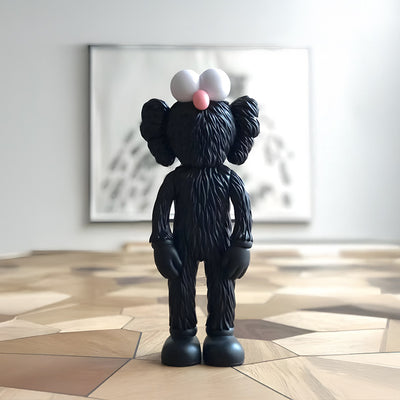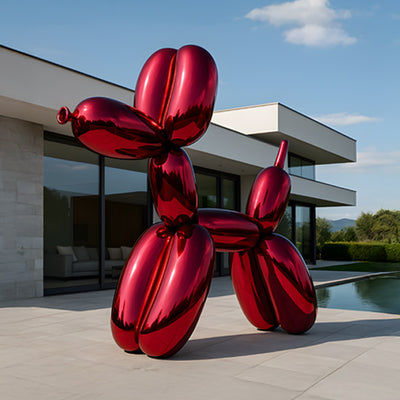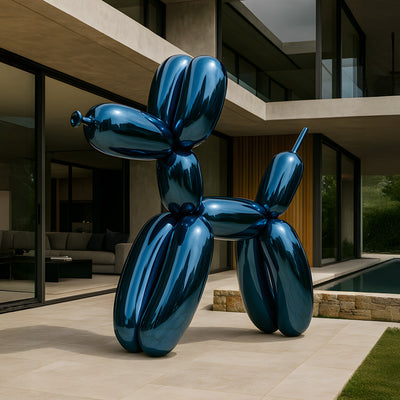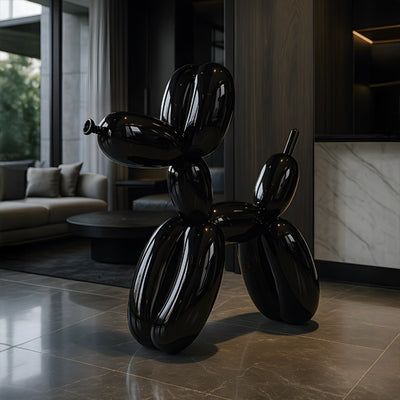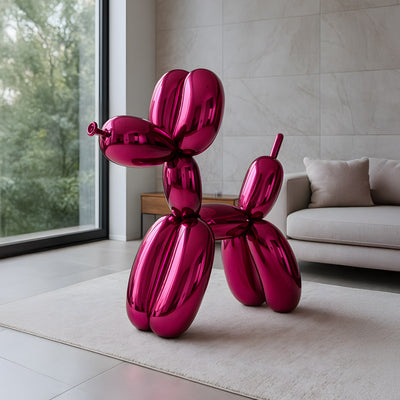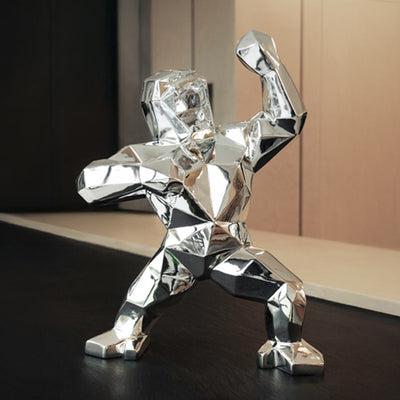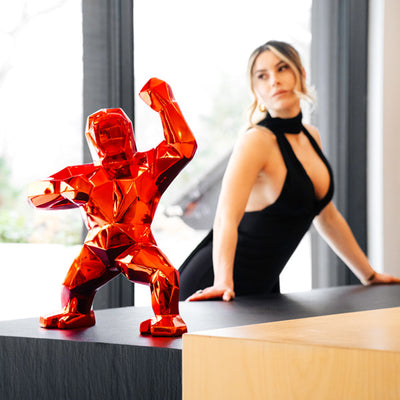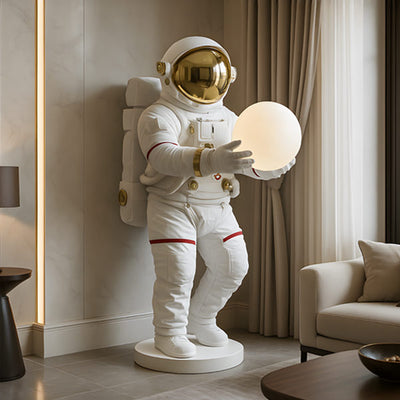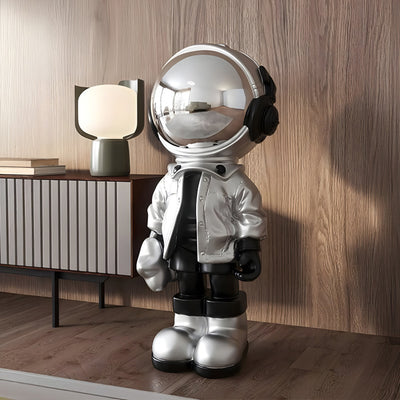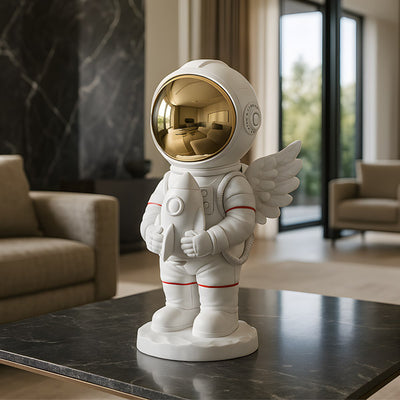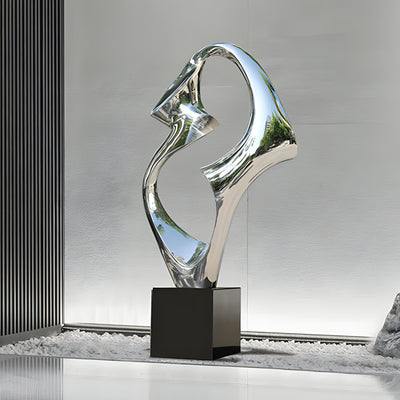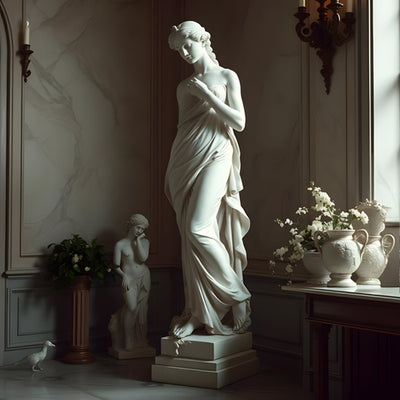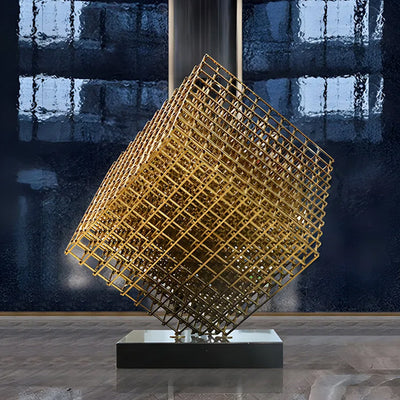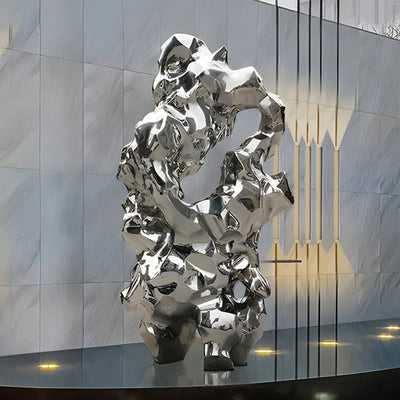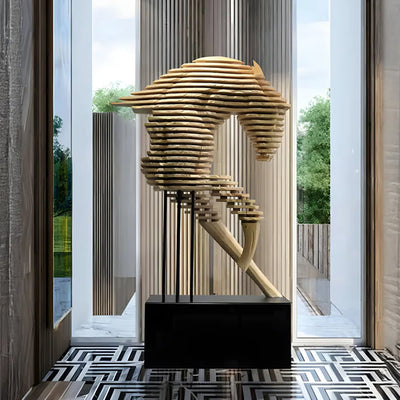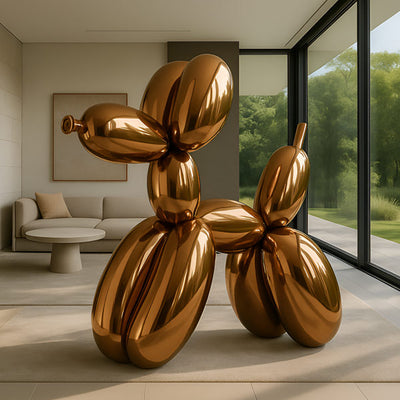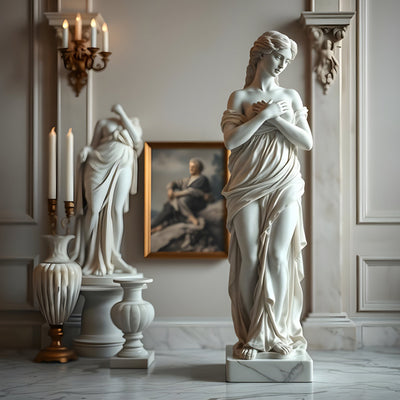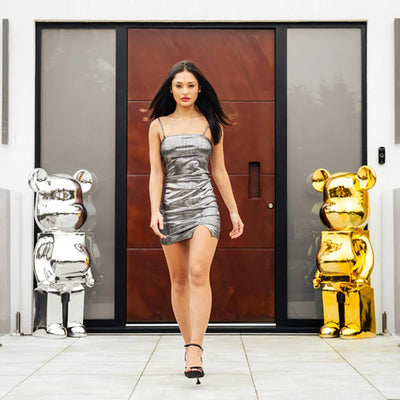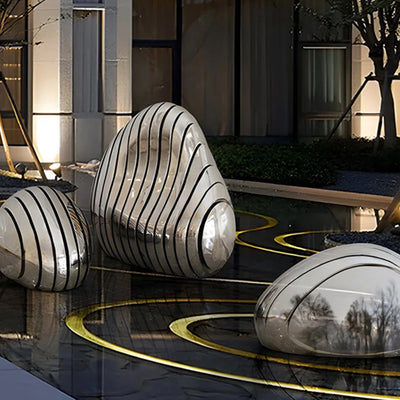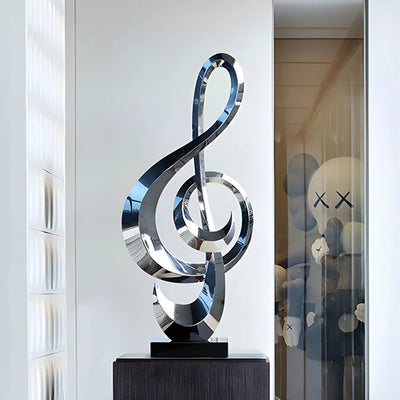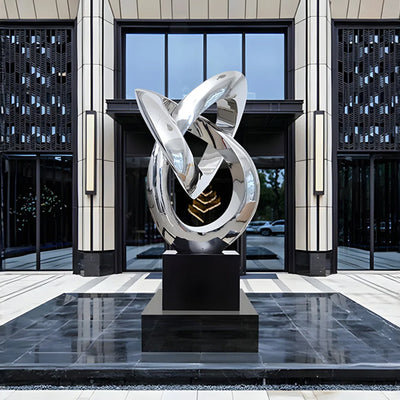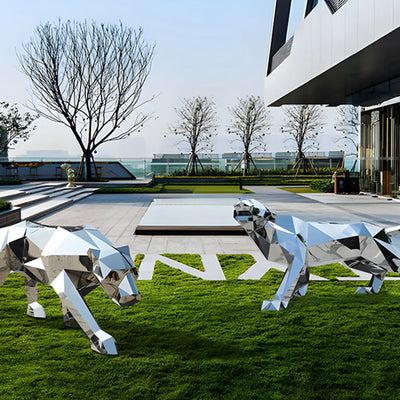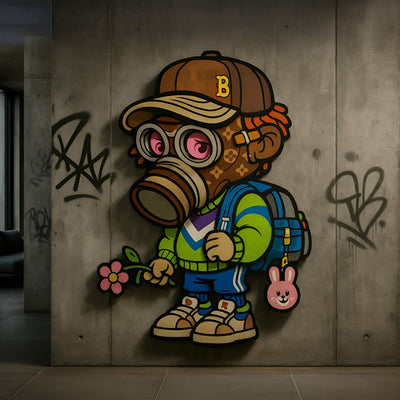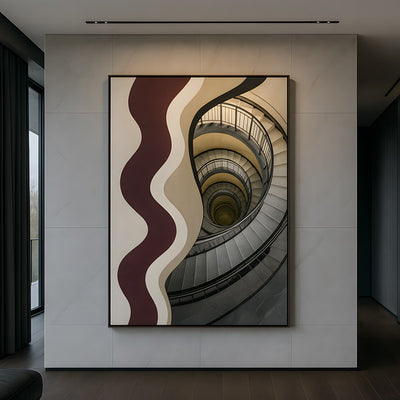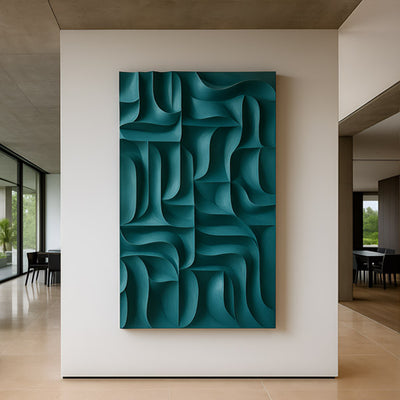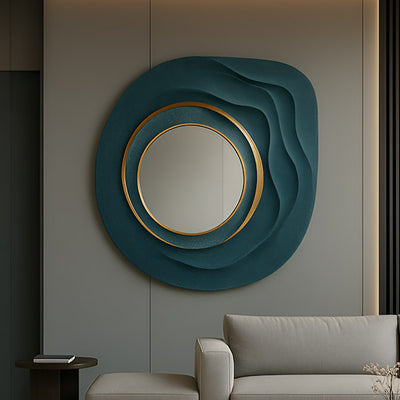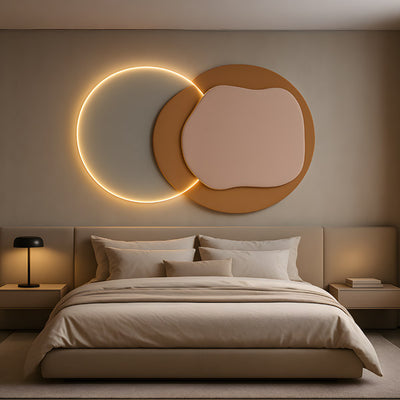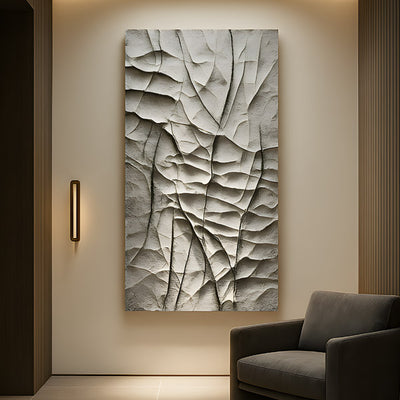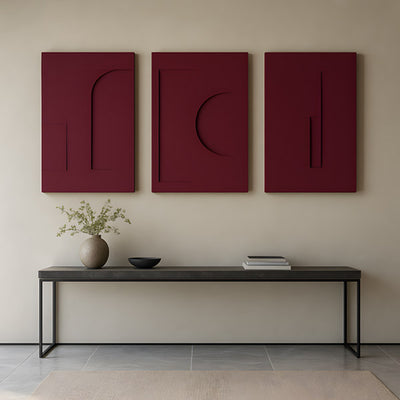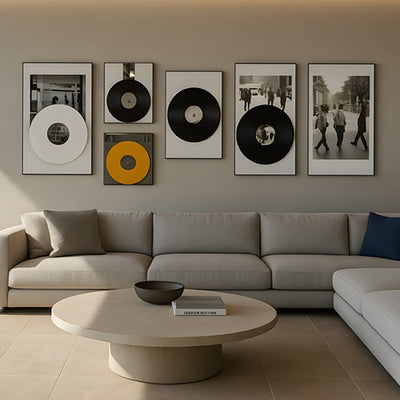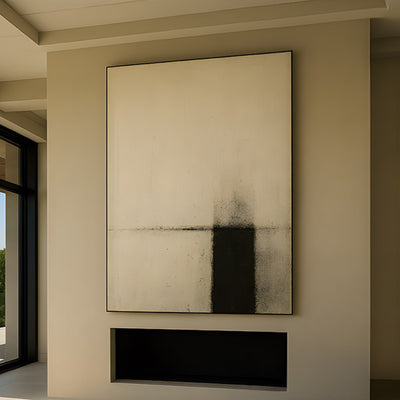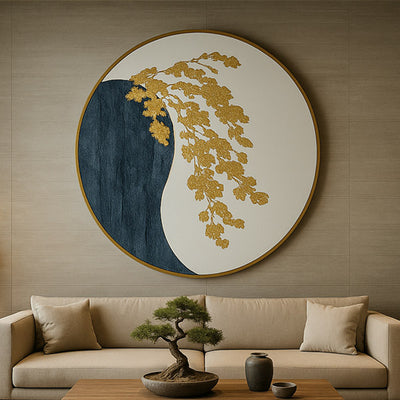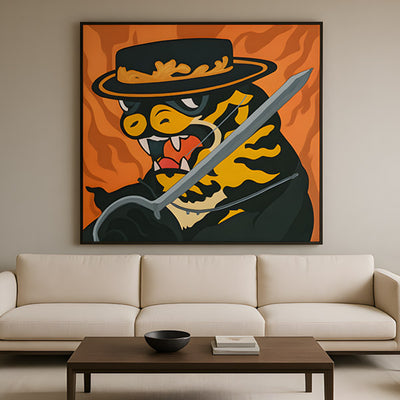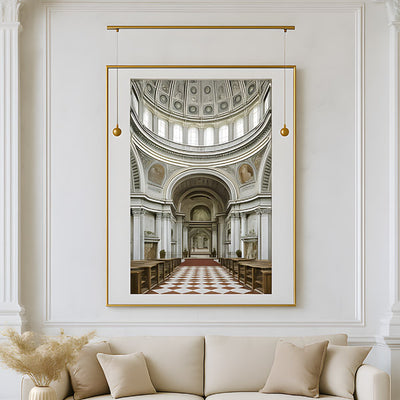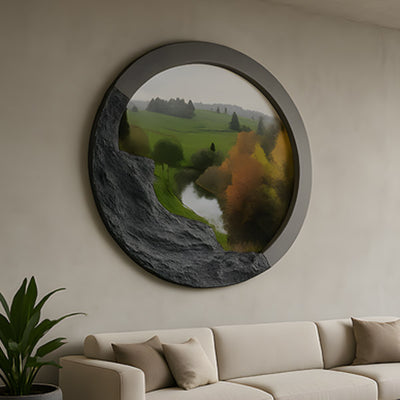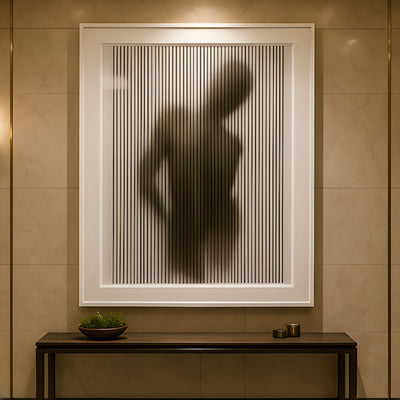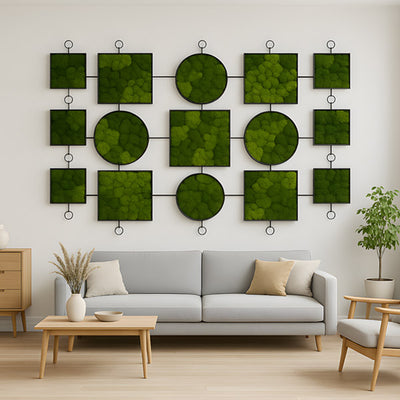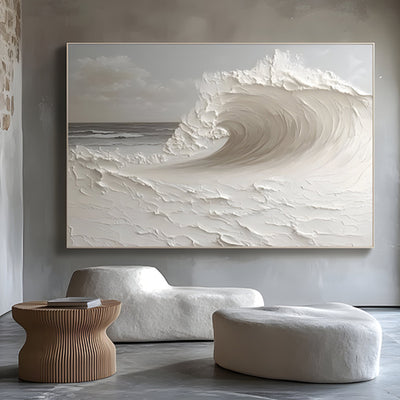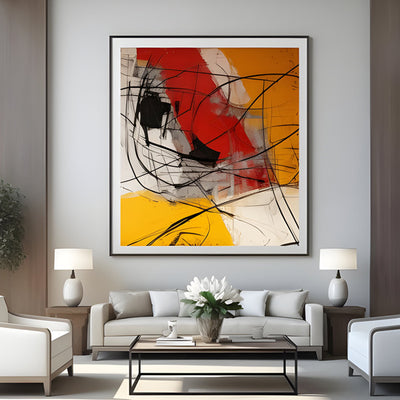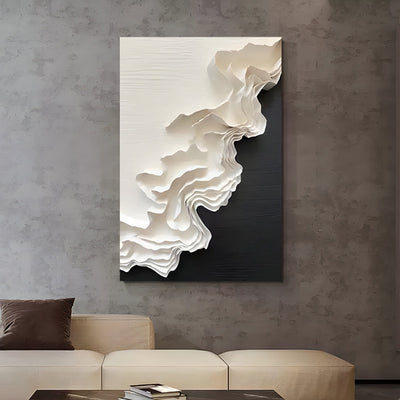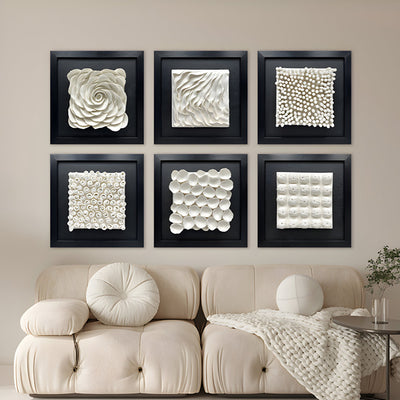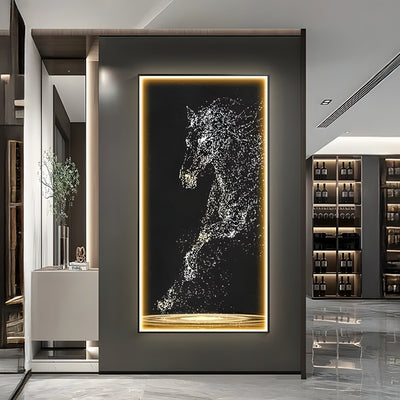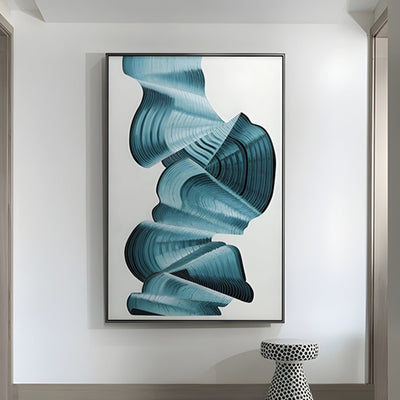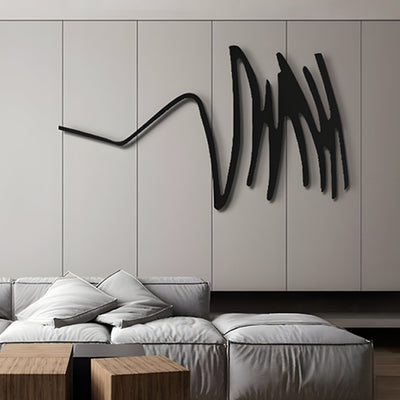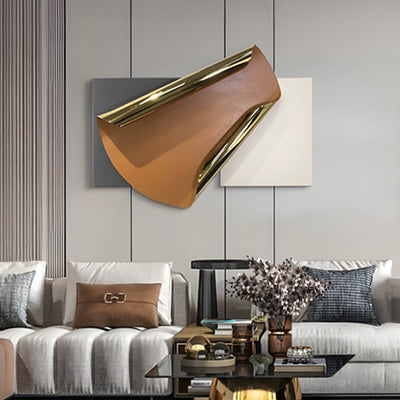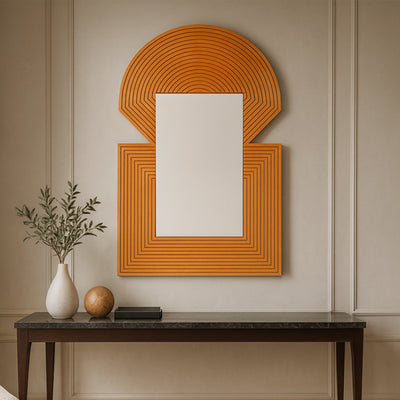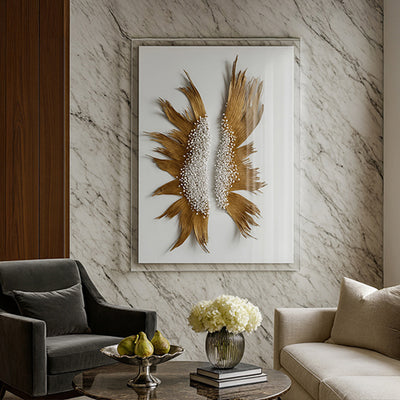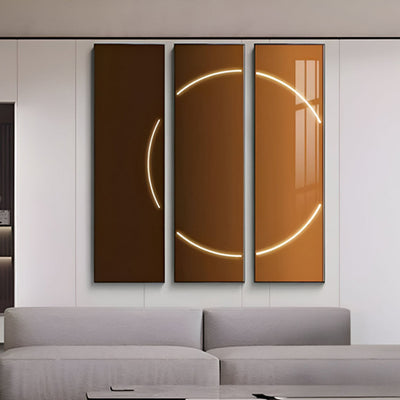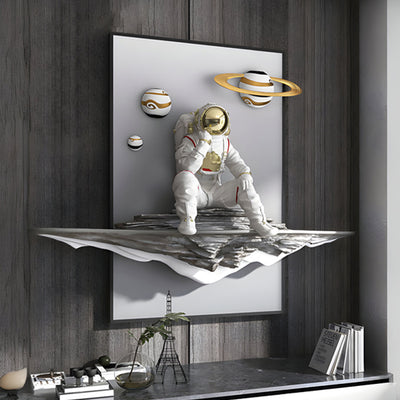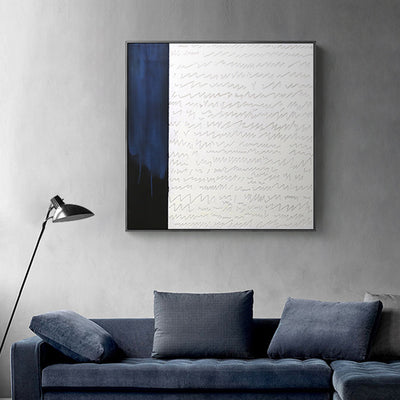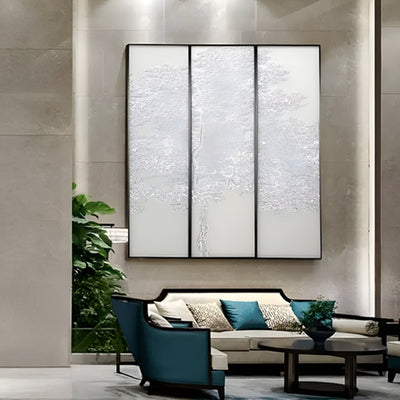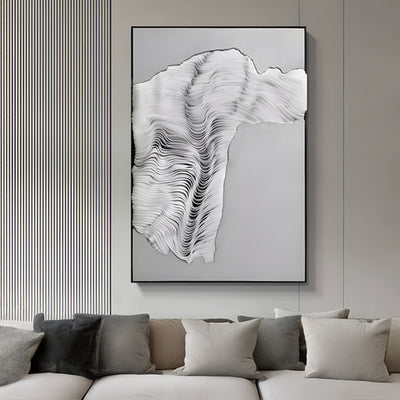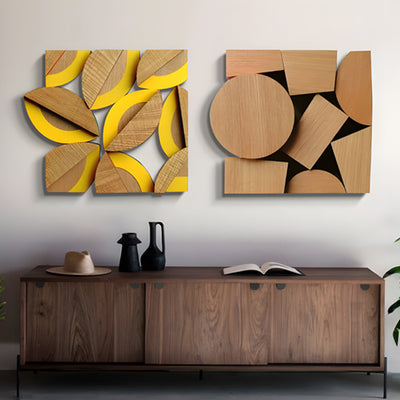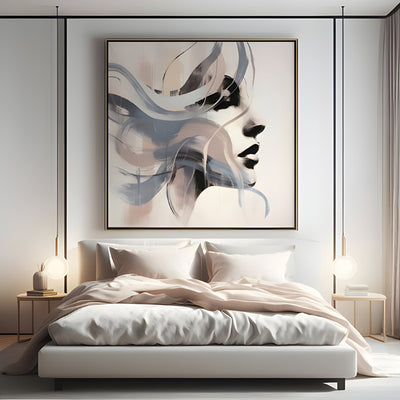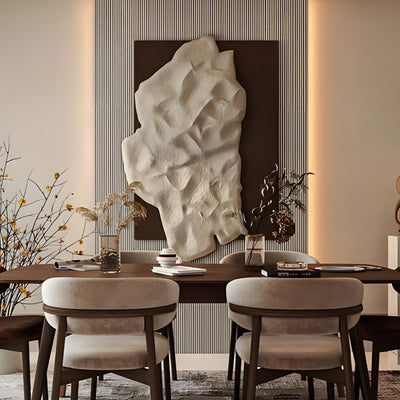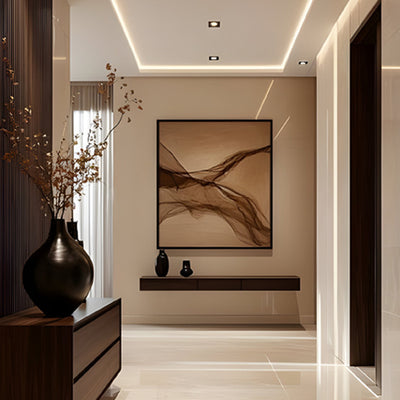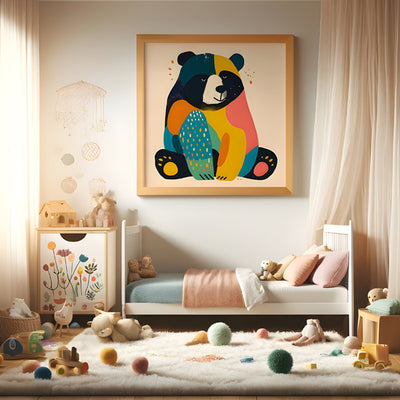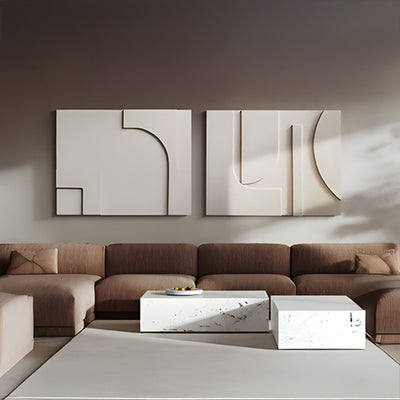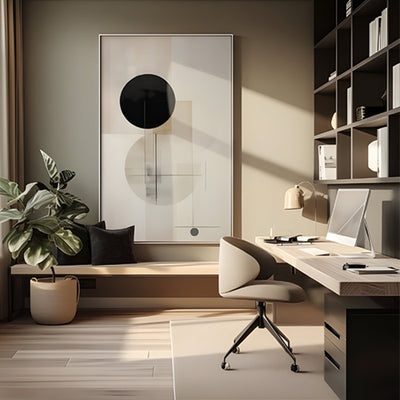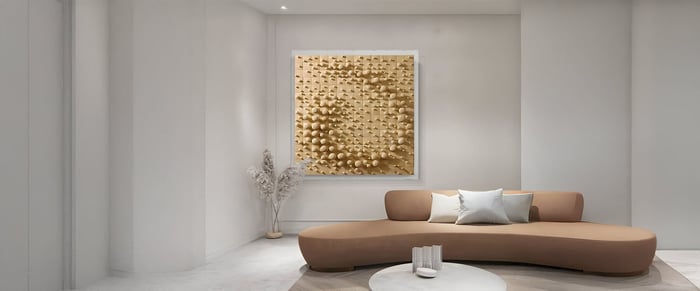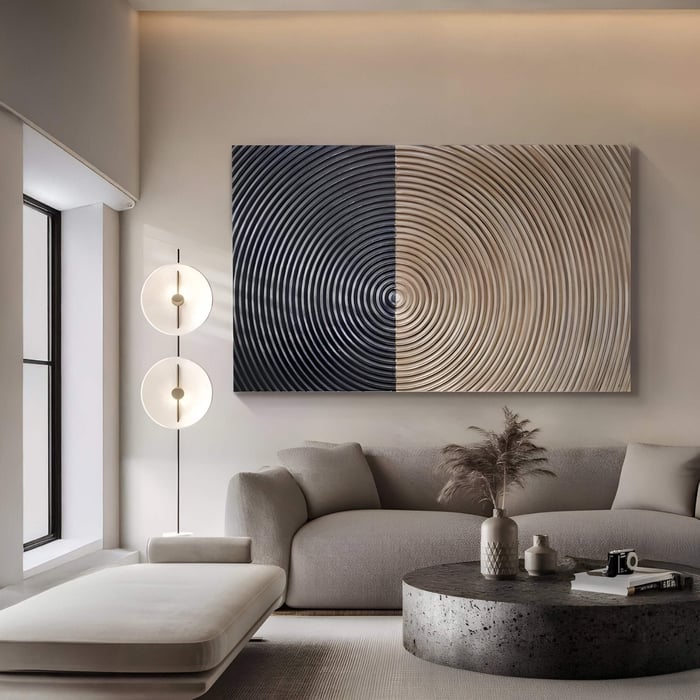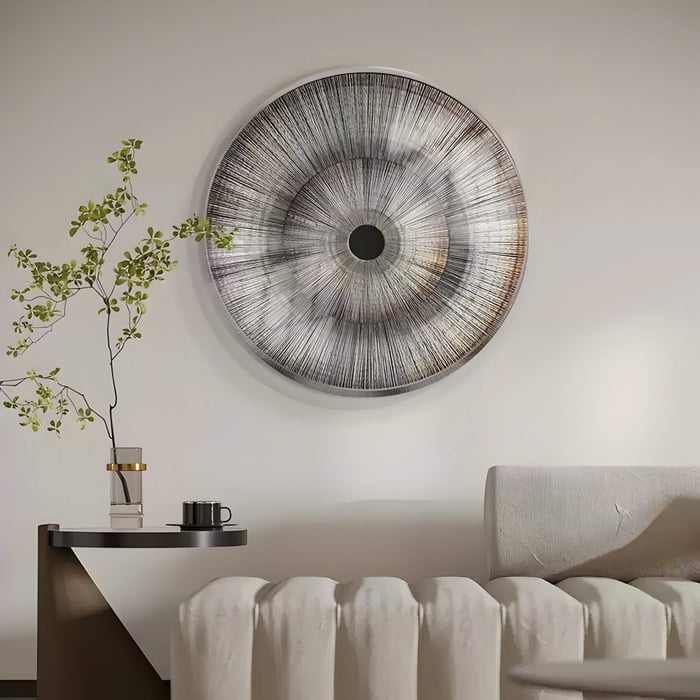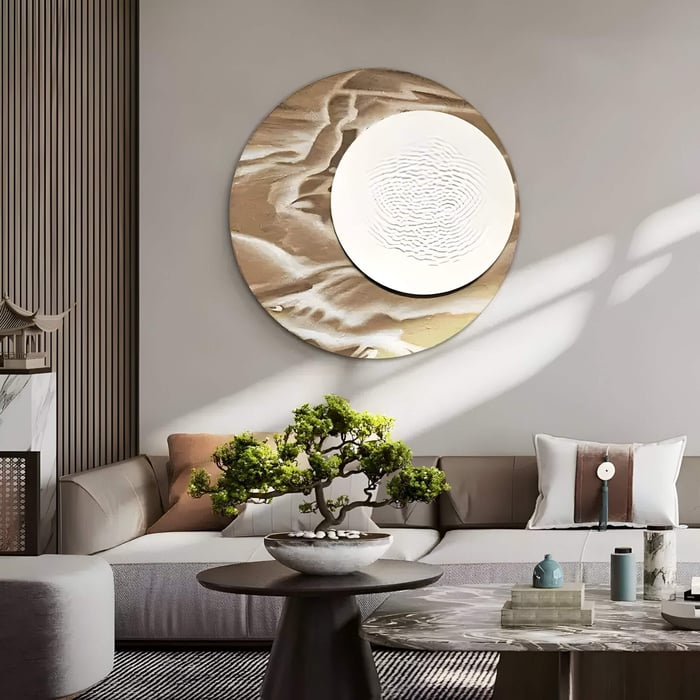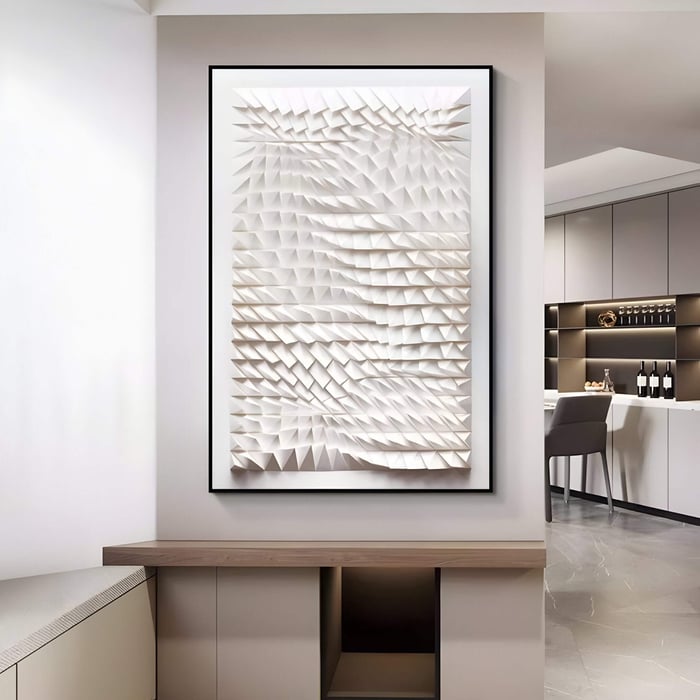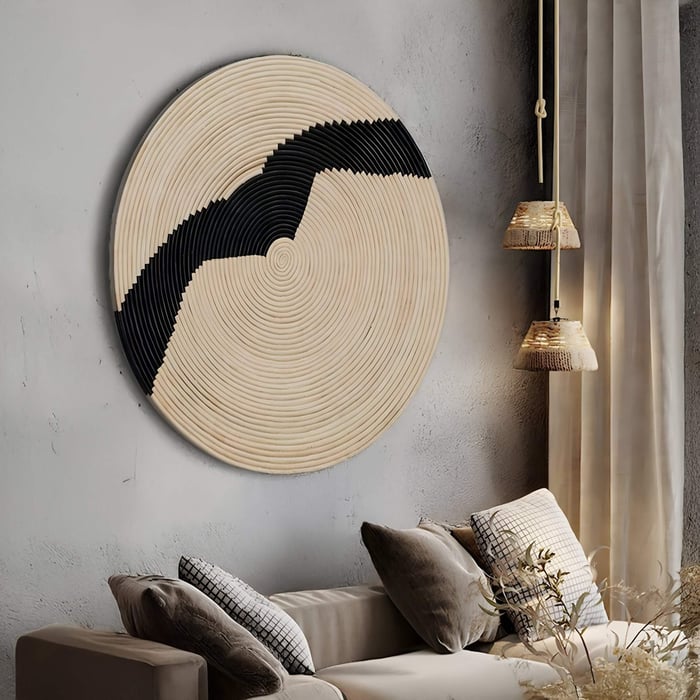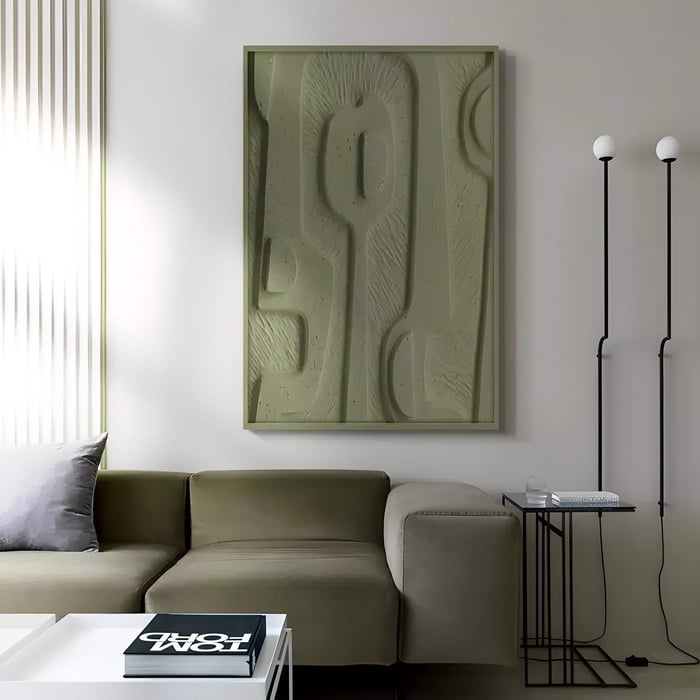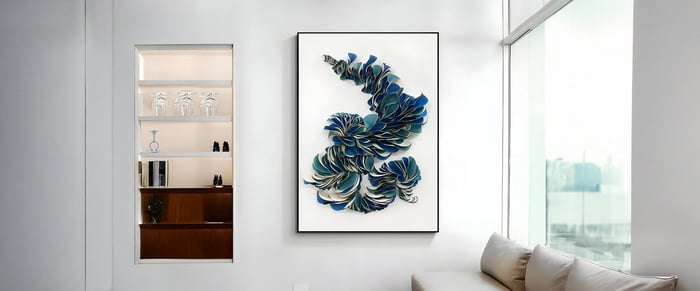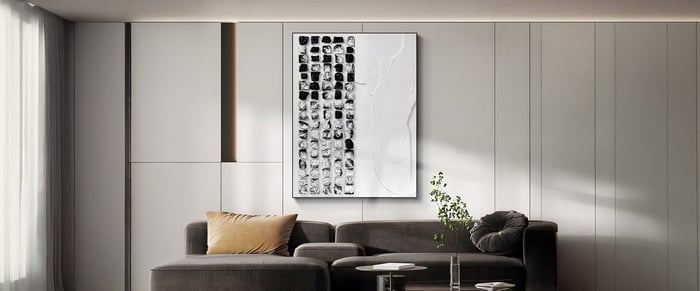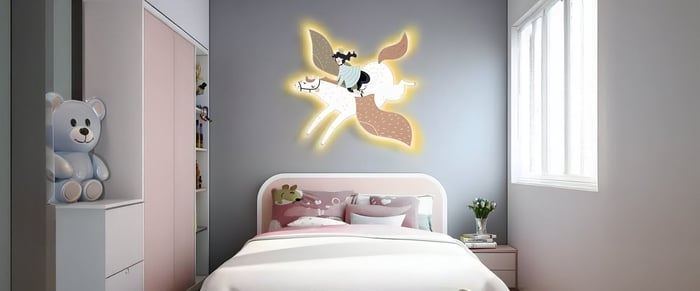In an age of visual overload and fast-paced design trends, many people are turning to softer, calmer aesthetics to create peaceful homes. One standout trend that has taken hold in neutral interiors is the rise of muted geometric art. This style merges the structured beauty of geometry with subdued tones and minimalist design, offering a balance between precision and calm.
Muted geometric compositions share common ground with abstract designs and modern art, drawing from a heritage of simplicity and form. From minimalist geometric paintings to subtle geometric patterns in large-format prints, these artworks provide a visual rhythm that’s both elegant and grounding. Whether you're working with a Nordic-inspired interior, a wabi-sabi living space, or modern neutral decor, integrating calming wall art in soft tones can enhance the sense of stillness and sophistication.
In this article, we’ll unpack the key elements of muted geometry in wall decor, explore why it works so well in understated interiors, and share practical tips for choosing and styling pieces that elevate your space.
Understanding Muted Geometric Art
Muted geometric art features clean shapes - squares, circles, triangles, and linear compositions, executed in gentle hues. Think beige, blush, taupe, soft grey, clay, or faded terracotta tones. These compositions often rely on a minimalist aesthetic and favour harmony over high contrast.
What sets it apart is its quiet confidence. Unlike its bolder relatives, soft-toned wall decor leans into balance. Whether painted on canvas or printed on textured paper, the muted colour palette encourages calm. And it’s not only about colour: subtle geometric patterns introduce order, structure, and flow into a room.
The success of geometric art in interiors lies in its duality: it is both modern and timeless. Abstract geometric designs bring logic and rhythm to a space, while a subdued palette prevents it from feeling harsh or cold. A muted colour palette doesn’t always mean boring - it means serene. These artworks can still make a statement but do so quietly. They establish flow and harmony, encouraging relaxation and mindfulness, especially when placed in common living areas like lounges, bedrooms, or entryways.
Benefits of Incorporating Muted Wall Art in Neutral Interiors
Neutral interiors are all about simplicity, harmony, and longevity. The appeal of soft-toned wall decor lies in how effortlessly it blends into these spaces while still offering texture and depth. Here’s why subtle geometric designs work so well:
Visual Ease: They offer structure without visual tension, supporting a calm and clutter-free environment.
Design Versatility: These artworks play well with minimalist furniture, organic textures, and natural materials like linen, jute, wood, or stone.
Textural Balance: Subtle layering and light contrast add dimension to flat walls without dominating the room.
Stylistic Compatibility: They complement modern rustic spaces, Scandinavian interiors, or contemporary rooms rooted in tonal harmony. This includes a nod to zen art and wabi-sabi aesthetics, where simplicity, natural imperfections, and mindfulness guide the visual language.
Whether it’s a series of three-toned curves on canvas or a pale grid print, these works quietly anchor your decor without screaming for attention.
Selecting the Right Pieces for Your Space
When integrating geometric art into a neutral interior, keep the following in mind:
Match the Mood
Identify the emotion you want your space to evoke. Are you going for serene and soft? Try artwork in a muted colour palette with rounded, flowing forms. Want something a little more energising but still restrained? Choose angular shapes in warm neutrals like terracotta or sand.
Consider Scale and Placement
For large walls, opt for oversized canvas pieces or a series of complementary works.
In smaller spaces, a carefully framed minimalist piece can create a focal point without cluttering the room.
Above a sofa or bed, aim for artwork that spans around two-thirds of the furniture width.
Where to Source
You can find geometric art from:
Local galleries or design fairs (supporting emerging artists).
Online platforms such as Saatchi Art, Society6, or Giant Sculptures.
DIY options using stencils and textured paints for a personal touch.
Styling Tips: Integrating Geometric Art Seamlessly
Create Flow
Tie multiple rooms together with a recurring visual motif - a recurring shape or muted tone repeated in each artwork throughout your home builds cohesion.
Layer Textures
Pair your artwork with other muted elements: boucle cushions, jute rugs, or unfinished wood. This elevates the textural appeal while keeping the focus gentle. Combining minimalist geometric paintings with organic art textures, like clay, jute, or linen, builds contrast while maintaining calm.
Build a Gallery Wall
Create a serene wall display using a mix of soft-toned geometric prints. Vary shapes but maintain a cohesive theme through colour or line style. Use slimline or natural wood frames for consistency.
Frame Smart
Floating wood frames or no-frame canvas wraps support a natural, clean look. Choose a frame finish that matches flooring, furniture legs, or cabinetry for subtle harmony.
Blend Function and Form
In home offices or hallways, opt for art with utility, think bulletin boards made from natural cork in grid formations or modular panels that serve as acoustic dampeners.
Mix with Organic and Wabi-Sabi Elements
Contrast is key. Match subtle geometric patterns with irregular, organic accessories: a driftwood bowl, ceramic vessels, or a linen throw. This tension adds interest without disrupting cohesion.
Case Studies: Real-Life Applications
Take a look at how soft-toned patterned abstract art has transformed interiors:
A zen-inspired bedroom featuring a large, faded circular print in beige tones above a low timber bed adds softness without disrupting stillness.
In a Scandinavian living room, layered triangle and arch motifs in light grey and dusty peach accentuate the geometry of the space while keeping the vibe airy.
A hallway gallery wall composed of cream, taupe, and light olive prints, each framed in pale oak, adds rhythm to an otherwise overlooked space.
Designers love muted geometric themes for their adaptability. Whether anchoring a focal point or gently reinforcing existing architecture, these works offer consistent elegance.
Conclusion: Embracing Subtlety in Design
Muted geometric art proves that structure and serenity can coexist. It offers an elegant way to introduce pattern, texture, and balance into your home while maintaining a peaceful ambiance. As you curate your space, remember: great design doesn’t have to shout. Sometimes, it just needs to whisper with intention.
In a world dominated by loud visual input, choosing subtlety becomes a powerful act. So if you're looking to enhance your space with something meaningful but not overpowering, consider this your invitation to explore.
For a curated collection of serene wall art, explore Giant Sculptures' soft-toned and minimalist geometric art range. Whether it’s for your hallway, bedroom, or lounge, discover how quiet design can make the loudest impact.
